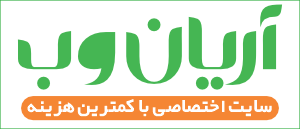پیشنهاد کنسرسیوم غنی سازی خلیج فارس بامحوریت ایران و عربستان

نویسنده گان: سید حسین موسویان و فرانک فون هیپل اساتید دانشگاه پرینستون آمریکا اختصاصی اقتصاددان : دو کشور ایران و عربستان میتوانند محور ایجاد یک سیستم همکاری و امنیت جمعی درحوزه خلیج فارس شامل همکاریهای جامع سیاسی-اقتصادی-امنیتی-نظامی-فرهنگی باشند. چنین سیستم جامع همکاری ، میتواند شامل یک کنسرسیوم مششترک غنی سازی درحوزه خلیج فارس
نویسنده گان: سید حسین موسویان و فرانک فون هیپل اساتید دانشگاه پرینستون آمریکا
اختصاصی اقتصاددان : دو کشور ایران و عربستان میتوانند محور ایجاد یک سیستم همکاری و امنیت جمعی درحوزه خلیج فارس شامل همکاریهای جامع سیاسی-اقتصادی-امنیتی-نظامی-فرهنگی باشند. چنین سیستم جامع همکاری ، میتواند شامل یک کنسرسیوم مششترک غنی سازی درحوزه خلیج فارس باشد و کشورهای عضو کنسرسیوم متعهد به عدم ساخت بمب هسته ای باشند.
متن مقاله:
عربستان برای عادیسازی روابط با اسرائیل سه شرط قائل شده است: پذیرش غنی سازی اورانیوم درعربستان، تضمین امنیت عربستان توسط آمریکا و به رسمیت شناختن یک دولت مستقل فلسطینی.
عربستان به آمریکا پیشنهاد کرده که بامشارکت دوکشور، “آرامکو هسته ای” به منظور صادرات سوخت هسته ای به سایر کشورها درعربستان ایجاد شود. اسرائیل که خود بمب هسته ای دارد، نگران دسترسی سایرکشورهای منطقه خاورمیانه به توانمندی غنی سازی اورانیوم است چون امکان ساخت بمب اتم خواهند داشت. نتانیاهو درسخنرانی امسال درمجمع عمومی سازمان ملل گفت ازهمه توانش برای ممانعت از دسترسی ایران به بمب هسته ای استفاده خواهد کرد. اما او دراقدامی متناقض، با دولت بایدن درحال رایزنی است که غنی سازی اورانیوم در عربستان تحت نظر آمریکا پذیرفته شود.
غنی سازی اورانیوم درعربستان، حتی اگر زیرنظر آمریکا باشد، باعث خواهد شد که سایر کشورهای منطقه مثل مصر و ترکیه و امارات متحده عربی نیز خواستار بهره مندی کشورشان از غنی سازی اورانیوم شوند. لذا ایده یک کنسرسیوم غنی سازی مشترک درخاورمیانه میتواند موجب اطمینان جهانی درمورد اهداف صلح آمیز آن باشد. حمله اخیر حماس به اسرائیل، موجب تاخیر توافق آمریکا، عربستان و اسرائیل درمورد ایجاد تاسیسات غنی سازی درخاک عربستان خواهد شد. درعین حال باید نیاز کشورهای خاورمیانه به سوخت هسته ای را مدنظر داشت و اینکه یک کنسرسیوم مشترک چندجانبه میتواند مانع انحراف تاسیسات غنی سازی به سمت ساخت بمب هسته ای شود.
طبق ماده چهار معاهده عدم اشاعه (ان پی تی)، همه کشورهای عضو این معاهده حق بهره مندی از تکنولوژی صلح آمیز هسته ای برای اهداف صلح آمیز را دارند. از ۱۹۷۰ کشورهند از طریق تکنولوژی فراوری سوخت هسته ای و کشور پاکستان از طریق تکنولوزی غنی سازی به بمب هسته ای دست یافتند. از آن زمان به بعد حساسیت جامعه جهانی درمورد امکان ساخت بمب هسته ای توسط سایر کشورها بیشتر شده است.
اصولا تاسیسات کوچک غنی سازی، اعم از اینکه در بزریل یا ژاپن یا ایران و یا عربستان باشد، اقتصادی نیستند و نمیتوانند با تامین کننده گان بزرگ فعلی سوخت هسته ای درجهان یعنی روسیه و چین و کنسرسیوم اروپایی یورنکو رقابت کنند. سه کشور آلمان و هلند وانگلستان صاحب کنسرسیوم مشترک غنی سازی اروپا هستند که دومین تولید کننده سوخت هسته ای جهان بعد از روسیه است. حتی کشوری مثل آمریکا هم حمایت از شرکتهای غنی سازی اورانیوم آمریکایی را متوقف کرد وامروزه یورنکو اروپا، سوخت هسته ای آمریکا را تامین میکند و آمریکا غنی سازی ملی ندارد.
لذا منطقه خاورمیانه هم میتواند مشابه اروپا، دارای یک کنسرسیوم بزرگ غنی سازی مشترک باشد که ۱) توجیه اقتصادی داشته باشد، ۲) ضامن ماهیت صلح آمیز آن باشد و ۳) موجب اعتماد سازی و همکاری بین کشورهای منطقه باشد و بتدریج جایگزین غنی سازی ملی درکشورهای مختلف شود.
روسای جمهور قبلی ایران اعم از اصولگرا و معتدل درسال ۲۰۰۵ پیشنهاد همکاری مشترک هسته ای کشورهای منطقه را مطرح کردند. آقای روحانی دبیر وقت شورایعالی امنیت ملی ایران هم در دیدار بهار سال ۲۰۰۵ با سران کشورهای عرب عضوشورای همکاری درخلیج فارس پیشنهاد مشارکت و همکاری مشترک درتکنولوژی هسته ای را مطرح کرد. آقای احمدی نژاد رئیس جمهور وقت ایران نیز در سخنرانی سپتامبر ۲۰۰۵ خود درمجمع عمومی سازمان ملل گفت ایران برای مشارکت جدی با بخش خصوصی و دولتی کشورهای دیگر درامر غنی سازی مشترک درایران، آمادگی دارد.
درعین حال موضوع “مکان” تاسیسات غنی سازی مشترک یک موضوع اختلافی بین کشورهای خاورمیانه خواهد بود. اسرائیل هم که تنها کشور صاحب بمب هسته ای است، صرفا بشرط نابودی کلیه سلاحهای هسته ای خود،ممکن است بتواند عضو چنین کنسرسیومی شود. اما درهرحال این موضوعات ممکن است مانع تحقق چنین ابتکاری شود.
اما دو کشور ایران و عربستان میتوانند محور ایجاد یک سیستم همکاری و امنیت جمعی درحوزه خلیج فارس شامل همکاریهای جامع سیاسی-اقتصادی-امنیتی-نظامی-فرهنگی باشند. چنین سیستم جامع همکاری ، میتواند شامل یک کنسرسیوم مششترک غنی سازی درحوزه خلیج فارس باشد و کشورهای عضو کنسرسیوم متعهد به عدم ساخت بمب هسته ای باشند.
چنانچه اسرائیل بپذیرد که بمب های هسته خود را نابود کند و به معاهده ان پی تی بپیوندد، مصوبات بین المللی درمورد خاورمیانه عاری از سلاح های هسته ای تحقق خواهد یافت. باتوجه به اینکه بحران جاری جنگ حماس و اسرائیل، بی اعتمادیها درخاورمیانه را بیشتر کرده و خواهد کرد، ممکن است این ایده ما ممکن است درشرایط فعلی عملی نباشد، اما اگر رهبران جهان برای صلح وامنیت منطقه چاره اندیشی نکنند، پیشرفت درسایرموارد هم عملی نخواهد بود.
درهرصورت ابتکار ایرانی-سعودی برای ایجاد یک کنسرسیوم مشترک غنی سازی یک قدم بسمت کاهش ریسک اشاعه سلاحهای هسته ای درمنطقه خواهد بود.
An alternative to the proliferation of uranium enrichment in the Middle East
During recent negotiations, Saudi Arabia reportedly has asked for three big concessions in exchange for normalizing relations with Israel: recognition of Saudi Arabia’s right to uranium enrichment; a US security guarantee for Saudi Arabia; and Israel’s recognition of an “independent Palestinian state.”
With regard to enrichment, Saudi Arabia has proposed that the United States partner with it in building a “nuclear Aramco” that would enrich and presumably export nuclear fuel. Israel, which has its own unacknowledged nuclear weapon program, correctly sees uranium enrichment as a route to nuclear weapons and has long opposed it in Iran and other Middle Eastern countries. At the United Nations on September 23, Prime Minister Netanyahu stated, “As long as I’m prime minister of Israel, I will do everything in my power to prevent Iran from getting nuclear weapons.”
Paradoxically, however, he may be working with the Biden administration on a deal that would allow uranium enrichment in Saudi Arabia, under US supervision.
A Saudi enrichment program—even in partnership with the United States—would likely prompt other nations, including the United Arab Emirates (UAE), Turkey, and Egypt, to launch their own enrichment programs. But a multinational consortium could supply the nuclear power plants of Middle Eastern countries while assuring the world that the enriched uranium it produced is used only for peaceful purposes.
The Hamas attack on Israel last week will certainly complicate and likely delay any agreement among Israel, the Saudis, and the United States. Eventually, however, the nuclear fuel needs of the Middle East will have to be addressed, and a multinational uranium enrichment enterprise seems a practical possibility for containing nuclear weapons proliferation in the region.
The enrichment landscape. Under Article 4 of the Treaty on the Non-Proliferation of Nuclear Weapons (NPT), every member state has the right to access nuclear technology for peaceful purposes. Since the 1970s, however—when India used reprocessing technology provided by the United States to launch its nuclear weapons program and Pakistan responded by launching its own nuclear weapons program using uranium enrichment technology obtained illicitly from the Netherlands—the spread of the capabilities to separate plutonium and enrich uranium have been central to the international debate over nuclear weapons nonproliferation policy.
The motivations for Saudi Arabia (or any other Middle Eastern country) to create a uranium-enrichment program would not be economic. No small enrichment program, including those of Brazil, Iran, and Japan, makes economic sense. Smaller programs simply cannot compete with the major suppliers of enrichment services: Russia, France, China, and URENCO. URENCO, with the second largest enrichment capacity after Russia, is owned jointly by Germany, the Netherlands, and the United Kingdom.
Even the United States abandoned its efforts to subsidize a private enrichment program in the face of this international competition. The only enrichment capacity in the United States today is owned by URENCO.
If it is impossible to prevent the spread of enrichment capabilities to the Middle East, however, the best alternative to a dangerous proliferation of national programs would be a multinational consortium such as a URENCO for the Middle East. A multinational would be more economically viable. It also would provide greater assurance to the world that the enrichment is strictly for peaceful purposes and would be a great confidence-building measure among the member states in the region.
Indeed, one motivation for the founding of URENCO in 1970 was the Soviet Union’s concern about Germany having a national enrichment program. A Middle East enrichment consortium could include protections against technology leakage and foreign partners that have enrichment expertise, including the United States. All the Middle Eastern partners in such a consortium would have to forego national enrichment programs and use the enriched uranium produced by the consortium to fuel their nuclear power plants.
Both moderate and hardline Iranian presidents floated a related idea in 2005. That spring, one of us (Mousavian) accompanied Iran’s future president, Hassan Rouhani, then secretary of Iran’s Supreme National Security Council, to separate meetings with the heads of the other Persian Gulf States with whom he offered to share Iran’s enrichment technology. That September Iran’s new hardline President Ahmadinejad, in a speech at the UN, stated, “The Islamic Republic of Iran is prepared to engage in serious partnership with private and public sectors of other countries in the implementation of uranium enrichment program in Iran … as a further confidence-building measure.”
A Saudi-Iranian enrichment partnership? The location of a multinational Middle East enrichment program would of course be a contentious issue. But if this issue could be dealt with, Saudi Arabia and Iran could be founding partners of a Middle East enrichment consortium. In the first step, building on the recent efforts at détente between Iran and Saudi Arabia, a regional security and cooperation system could be established in the Persian Gulf. This regional cooperation system could contain a multilateral enrichment mechanism coupled with a pledge by consortium members not to acquire nuclear weapons or national enrichment or plutonium separation programs in the context of wider political, security, economic and cultural cooperation.
Other Middle Eastern countries could join in a subsequent phase. That could provide a long-term solution to concerns about Iran’s national program.
Israel, the only country currently possessing nuclear weapons in the Middle East too could join and monitor the facility if it abandoned its nuclear weapons program and dismantled its nuclear weapons. That would realize the dream of a Middle East nuclear-weapons-free zone that has been on the international agenda for 50 years.
Given the deep wells of distrust in the Middle East—deepened today by Hamas’ attack on Israel—our proposal may be dismissed as politically infeasible. If political leaders cannot imagine a more peaceful, secure, and stable future for the region, however, no progress will be possible. A Saudi-Iranian uranium-enrichment consortium could be a step on a path toward reduced nuclear risk for the entire region.
Ambassador Seyed Hossein Mousavian is a Middle East Security and Nuclear Policy Specialist at Princeton University and a former chief of Iran’s National Security Foreign Relations Committee. His book, A Middle East Free of Weapons of Mass Destruction, was published in May 2020 by Routledge. His latest book, A New Structure for Security, Peace, and Cooperation in the Persian Gulf, was published in December 2020 by Rowman & Littlefield Publishers.
ّrank N. von Hippel is a Professor of Public and International Affairs emeritus, Princeton University, a co-founder of the Program on Science and Global Security at Princeton University’s School of Public and International Affairs, a founding co-chair of the International Panel on Fissile Materials, and a member of the Bulletin’s Board of Sponsors. A former assistant director for national security in the White House Office of Science and Technology, von Hippel’s areas of policy research include nuclear arms control and nonproliferation, energy, and checks and balances in policy making for technology.
مخاطب گرامی، ارسال نظر پیشنهاد و انتقاد نسبت به خبر فوق در بخش ثبت دیدگاه، موجب امتنان است.
ع
برچسب ها :ایران و عربستان ، دکتر فرانک فون هیپل ، دکترسید حسین موسویان ، کنسرسیوم غنی سازی خلیج فارس
- نظرات ارسال شده توسط شما، پس از تایید توسط مدیران سایت منتشر خواهد شد.
- نظراتی که حاوی تهمت یا افترا باشد منتشر نخواهد شد.
- نظراتی که به غیر از زبان فارسی یا غیر مرتبط با خبر باشد منتشر نخواهد شد.




ارسال نظر شما
مجموع نظرات : 1 در انتظار بررسی : 1 انتشار یافته : ۰